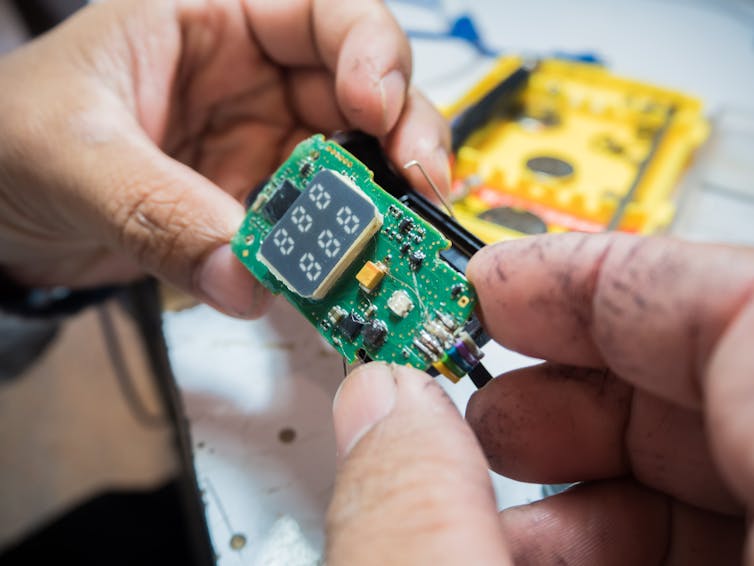
Imagine waiting weeks or months for your wheelchair’s battery or custom cushions to be replaced. This is the situation throughout Canada that thousands of people with disabilities face not only in relation to wheelchairs, but also other assistive devices, including hearing aids and insulin pumps.
For people who rely upon assistive devices like wheelchairs, speedy and reliable repair is also an issue of autonomy. In Ontario, one of the biggest challenges with wheelchair repair is that the Ontario government has a repair contract with only one wheelchair company. Any repair delays leave wheelchair users without service and, worryingly, without the full use of their wheelchairs.
Disability advocates urge the Ontario government to open the repair contract to other suppliers. But there’s another solution: Ontario should adopt a right-to-repair law and support similar legislation at the federal level, as I recently wrote in an article for the Centre for International Governance Innovation.

(Shutterstock)
Consumer empowerment
The right to repair gives consumers the ability to take apart, modify and fix software-enabled devices, either by oneself or using an independent repair shop. It requires original equipment manufacturers to make the necessary spare parts, tools, repair manuals and diagnostic software available for reasonable prices.
The right to repair broadly applies to a range of goods, from agricultural equipment and vehicles to cell phones and medical equipment.
Ontario needs to consider creating a medical right to repair. Such a law would enable qualified technicians, including those working for hospitals, to repair vital medical equipment such as powered wheelchairs, cochlear implants and ventilators.
A right to repair means that users of medical and assistive devices would be able to patronize qualified independent repair personnel without the fear of losing warranties.
Ontario’s private member’s bill, Bill 187, proposes to amend the Consumer Protection Act. The bill proposes requiring manufacturers to make available to consumers and independent repair shops the tools, replacement parts and diagnostic software necessary to fix electronic products, household appliances and wheelchairs, as well as motor vehicles and farming equipment.

(Shutterstock)
Bill 187, currently ordered for second reading, is an important step toward the right to repair in Ontario. Few private member’s bills, however, become law. The bill’s success depends upon support from the Progressive Conservatives, which is unlikely.
An election issue
The right to repair, including a medical right of repair, should be an issue at the next Ontario provincial election.
At the federal level, Canada is slowly moving towards a right to repair. In the last two budgets, the federal government has promised to introduce right-to-repair legislation proceeded by a public consultation to help shape the law. Canadians interested in the right to repair can provide their views to the public consultation between June 28 and Sept. 26. A medical right to repair should be part of the discussion.
The right to repair is not only an economic issue, but also one with social and environmental benefits. Economically, the right to repair offers consumers more options to fix their goods and provides more business for independent repair shops, especially those in smaller communities. Socially, it enables people to learn and practice important repair skills and innovate, while also keeping broken devices out of landfills.
![]()
Natasha Tusikov receives funding from the Social Sciences and Humanities Research Council of Canada.
























